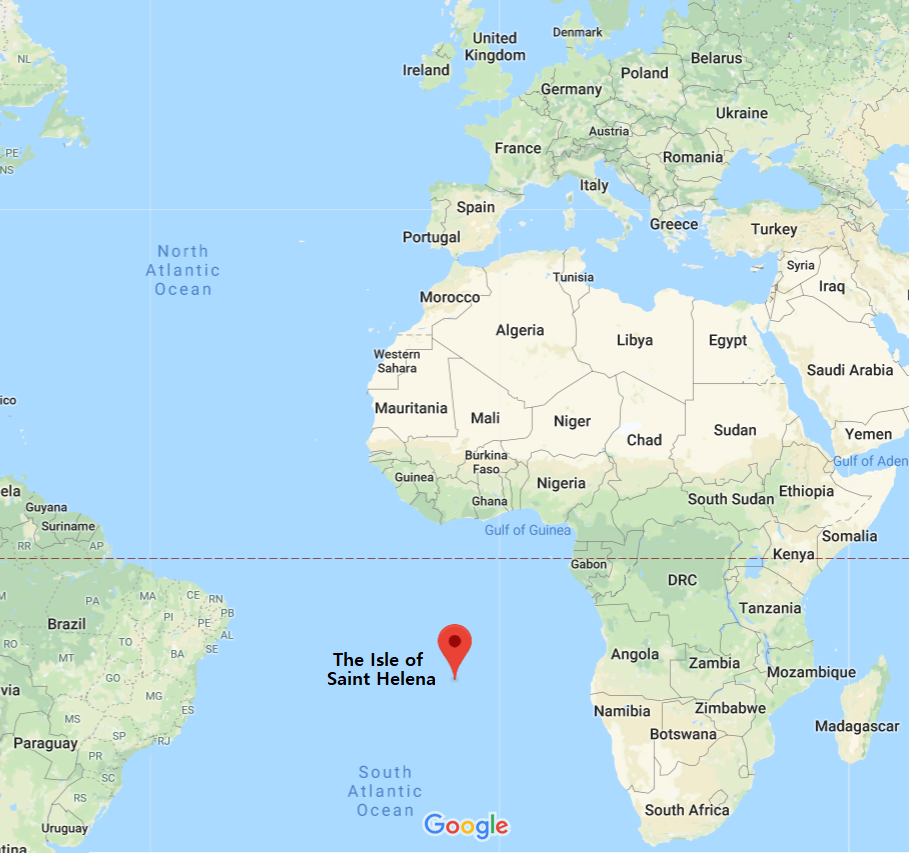The image of Napoleon alone on Saint Helena, for years, thousands of miles from the continent of which he was nearly undisputed master for most of the 1800-1815 period, is poetically tragic even if one doesn’t like Napoleon.
Are there any lessons from Napoleon for the rest of us? In the imagery of Saint Helena, there are. I would here cite the traditional folk song “The Isle of Saint Helena” which describes the man island-bound to Saint Helena and contemplating his life every day as he watches the waves.
and how fleeting they all were!”
Bonaparte is away
from his wars and his fighting.
He has gone to a place
he can take no delight in.
He may sit there and dwell,
on the glories he’s seen, Oh!
While alone, he remains,
on the Isle of St. Helena….
No more in St. Cloud
he’ll be seen in such splendor.
Or go on with his wars
like the great Alexander.
He sees his victories,
and how fleeting they all were!
While his eyes are on the waves,
that surround St. Helena….
Oh Louisy, she weeps
for her husband’s departin’.
And she dreams when she sleeps,
and she wakes broken-hearted.
Not a friend to console her,
in the past there were so many!
Now alone, she does mourn,
when she thinks of St. Helena….
Come all you’s got wealth,
pray beware of ambition.
It’s just one degree of fate,
that may change your condition.
Be steadfast in time,
what’s to come you know not!
Your race, it could end,
on the Isle of St. Helena….
Now the rude rushing waves,
all around they are washing.
And the white billows heave.
On the rocks, they are crashing.
He may list to the wind,
o’er the great Mt. Diana!
While alone, he remains
on the Isle of St. Helena….
[End]
(19th-century traditional;
this version by Uncle Earl, 2007)
Napoleon’s regime is, I would say, a good example of military-centric state-formation theory (as argued by Dr. Charles Tilly), or the idea that states/regimes are formed, consolidated, and/or animated by force-of-arms (“war made the state and the state made war”). A charismatic military victor forms a proto-state, or topples a weak state or proto-state and forms a new one (the general-turned-ruler). A ruler-turned-general is also possible, if he is seen to lead impressive military successes. In so doing he can rejuvenate his own weak state, a process that can even transform the state so much that other energies are released to the extent that a new regime has effectively been formed.
Any system based around a charismatic military figure is at risk when the victories stop coming, though, and the so-called charismatic state is the least stable of Max Weber’s state types (the others are traditional and legal-rational). Politically, the image of Napoleon on Saint Helena shows the risks of any regime being based so totally on the force of charismatic military legitimacy.
But viewing Napoleon not as a “charismatic military figure,” dictator, war-instigator, arch-imperialist, or threat to world peace (all of which are accurate labels), his fall and final years inevitably look tragic from the vantage of the isle of Saint Helena. And it is here that we can all relate to Napoleon:
We are all left on our own metaphorical Saint Helenas, multiple times throughout life. I refer to that state-of-mind we enter any longterm commitment or project ends. You are left only to reflect back on the glories, “and how fleeting they all were.” Perhaps after ending a job or graduating from a school. You did your best (hopefully) maybe with mistakes or failures, but it’s over. It is not a regret, more of a nostalgia or something like a pride at a job well done. Perhaps this occurs at the very end of one’s life, as it turned out Napoleon was.
To the line Your race, it could end, on the Isle of St. Helena, I would suggest a stronger word than ‘could’!

